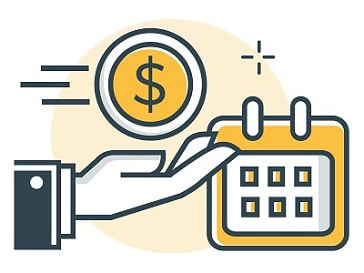Mortgage Relief & Holiday Guide - Options, Costs and Alternatives
We explain what mortgage relief and mortgage holidays are, the different options and pros and cons of each, and must-know facts to help you decide if payment suspensions or adjustments are right for you
Updated 26 April 2024
Every New Zealand bank offers support if you're struggling to make mortgage payments. In this guide, we outline the pros and cons and must-know facts, as well as links to all the banks providing payment support. We cover:
Know This First: What mortgage holiday options are available?
Every lender offers the same options. You have the choice of:
Important: Lenders are expected to offer mortgage flexibility for a term of up to six months.
Mortgage Holidays - Our view:
- Reducing your current repayment amounts, or
- Switching to ‘interest only’ payments, or
- Agreeing to a home loan repayment deferral (mortgage holiday)
Important: Lenders are expected to offer mortgage flexibility for a term of up to six months.
Mortgage Holidays - Our view:
- For most homeowners, Mortgage holidays should be a last resort.
- If you can pay at least the interest portion of your mortgage, that is usually preferable to taking a full mortgage holiday.
- This is due to any repayment holiday causing interest costs to be added to your mortgage balance.
- MoneyHub was quoted in a Stuff.co.nz article in March 2020 (during the global pandemic) discussing the pros and cons of mortgage holidays; we have extended our research and published this comprehensive guide to help anyone considering their options given the increase in mortgage interest rates since late 2022.
Arranging a Mortgage Holiday – Our Suggested Three Step Process
Your lender will explain the process in detail, but it's important to be fully aware to make the right decision. Everyone considering a mortgage holiday is in a unique financial position - there's no one solution for everyone. If you are in doubt about what is best for you, ask your lender to explain the options in further detail.
Step One: Contact your mortgage lenderYou will need to contact your bank or speciality lender directly. If you have used a mortgage broker, it’s best to go directly to the bank. The following banks have mortgage holiday instructions on their website:
To proceed:
Know this: A mortgage holiday does not affect your credit history as it is arranged directly with your lender. |
Step Two: Re-arranging your mortgage and selecting an optionYour bank or speciality lender will outline how a mortgage payment holiday works, and how interest will continue to be charged on the balance you owe. They will discuss the amount of money covered and future increases in your monthly repayments once the repayment holiday period ends.
Important: Understand the obligations of your lender
|
Step Three: Make a plan for your finances after the mortgage holiday finishesMortgage holidays don't last forever, so you'll need to budget for the repayments that follow the resumption of standard charges. This can be quite a shock, especially if you've been on zero repayments for six months. A popular option is to put aside some money during the mortgage holiday period to help when it ends. If you find yourself struggling after repayments start again, you have the option of making a hardship application. This guide details your rights and the process.
|
Mortgage Holidays – Pros and Cons of Each Option
To better understand the options that come with taking a mortgage holiday, we outline the pros and cons of each. If you have any questions or concern, ask your lender to detail the costs and benefits specifically for your mortgage balance.
Option One: Reducing your current repayment amounts
Pros:
- Your fortnightly or monthly mortgage payments are cheaper, meaning your fixed income can go further and pay other bills.
- You’ll pay more interest costs over the life of the loan.
- Your mortgage term may be extended, meaning you’ll have a mortgage for longer.
Option Two: Making interest-only payments
Pros:
- Your mortgage repayment amount drops as you don’t need to repay any principal.
- You also keep on top of the interest charges, so your mortgage balance doesn’t increase.
- Mortgage repayments will be higher at the end of your mortgage free period. This is because you have less time to pay down the debt.
- You will pay more interest over the life of the mortgage.
Option Three: Arranging a repayment deferral (mortgage holiday)
Pros:
- There are no payments; once approved, the principal and interest repayments will stop immediately.
- You can prioritise your income on other bills knowing your mortgage payments are suspended.
- Interest continues to be charged on the mortgage balance, which increases the amount.
- After the repayment deferral, the balance owed and ongoing repayments will be higher. This may make the loan less affordable
Calculating the Costs of Mortgage Holidays
To demonstrate the different costs of mortgage holidays, we compare zero repayment and interest-only repayment options against the base of ongoing repayments. To make things easier to understand, we’ve used a mortgage balance of $500,000 to explain the true cost of the different mortgage holiday options. We’ve used an interest rate of 6.00% over a 25-year term and compare the different costs:
Base situation: No mortgage holiday taken, repayments continue as normal for the life of the loan
Situation 1: 6-month mortgage holiday with no repayments (interest costs added to the loan)
Difference in Total Repayments: $995,446 - $966,452 = $28,994
Estimated additional time to repay your mortgage: 9 months
Situation 2: 6-month mortgage holiday with interest repayments only
Difference in Total Repayments: $15,000
Estimated additional time to repay your mortgage: Five months
Base situation: No mortgage holiday taken, repayments continue as normal for the life of the loan
- Total Repayments over 25 years: $966,452
- Total Interest cost: $466,452
- Repayment: $3,222 per month
Situation 1: 6-month mortgage holiday with no repayments (interest costs added to the loan)
- Interest cost increase: $15,000
- Total Repayments over 25 years: $995,446
- Total Interest cost: $480,446
- Repayment: $3,318 per month
Difference in Total Repayments: $995,446 - $966,452 = $28,994
Estimated additional time to repay your mortgage: 9 months
Situation 2: 6-month mortgage holiday with interest repayments only
- Repayment: $2,500 per month
Difference in Total Repayments: $15,000
Estimated additional time to repay your mortgage: Five months
Mortgage Holiday Frequently Asked Questions
Mortgage holidays are not a well-understood concept. To help you understand what's involved, we answer some of the common questions below.
I’m already behind with my mortgage – can I apply for a mortgage holiday?
Yes – you will not be excluded from applying. Assistance is available to anyone with a mortgage.
Can the bank sell my home during a mortgage holiday?
No - mortgage repossession proceedings are suspended if you are on a mortgage holiday.
Can I change my mortgage payment amount after the repayment holiday ends?
It depends – we suggest contacting your lender to discuss with them all the options and different costs.
What mortgage holiday option is best for me?
We discuss this in Pros and Cons to help you differentiate the options.
Can I cancel the direct debit for my mortgage?
You must agree your mortgage holiday terms and repayments with your lender before taking any action. If you cancel a direct debit, your lender will treat it as a missed payment and penalties will likely apply. You may also face negative credit history if you miss a mortgage repayment. If you have any questions, speak to your lender.
Related Resources
- If you’re trying to sort out your budget, our mortgage calculator can help
- Fixed vs Floating calculator (perfect for comparing the costs of a floating mortgage and a fixed deal)
- Loan Amortisation Calculator








